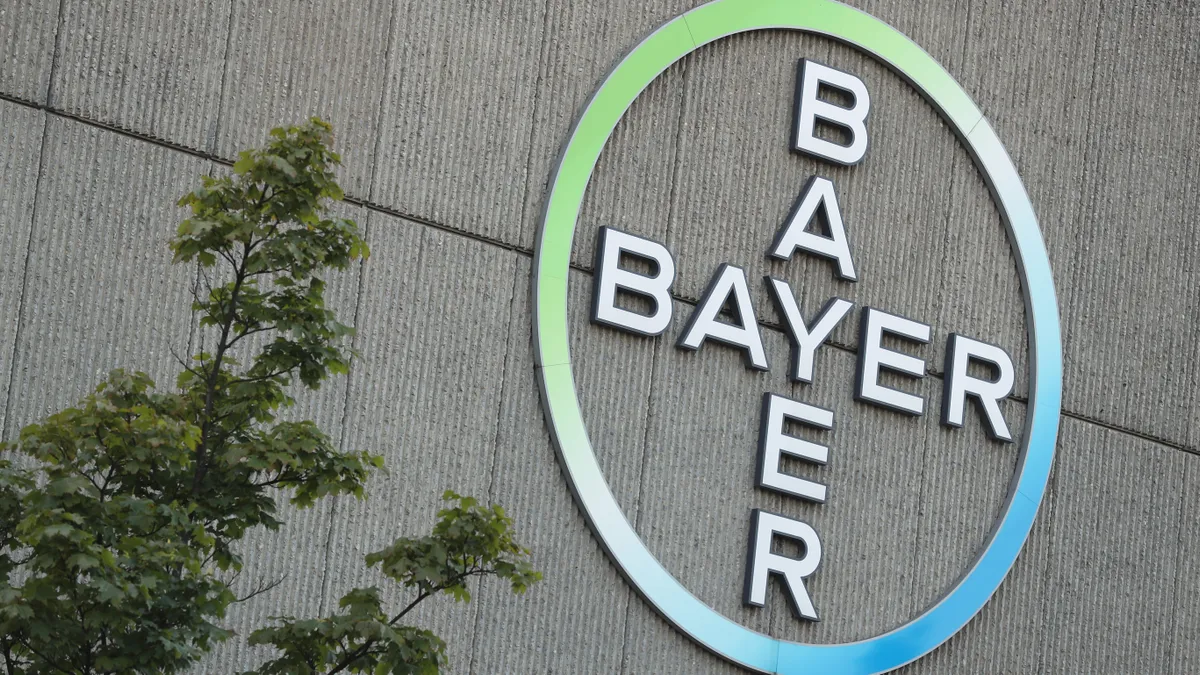Numerous blockbuster drugs will see their patents expire in 2024, giving way to emerging competition from generics this year and beyond. But not all pharma companies are dealing with the impending sales hit the same way.
Some companies have replacements at the ready with a new generation of the same drug, while others have tried their hand in court to stave off generics.
Either way, it’s a situation that will play out repeatedly over the next decade as hundreds of patents expire across pharma in what has been deemed a historic upcoming patent cliff.
Here are three drugs losing exclusivity this year and how their parent companies are approaching the changing market.
Bayer’s court strategy to guard Xarelto
With the patent for Xarelto, a blockbuster blood thinner, expiring, Bayer and Johnson & Johnson are working to protect their leading drug product. This battle has reached the courts with two pharma giants taking on companies attempting to bring generic competition to market.
Fighting the patent expiry for Xarelto worked for Bayer in Europe, and the European Patent Authority granted the company an extension in 2021 until January 2026. However, London's High Court ruled last week Bayer’s patent was invalid, overturning the 2021 decision, after rival pharmaceutical companies targeted the patent. Bayer said it will appeal the decision.
Outside the courts and in the lab, Bayer attempted to develop a different anti-clotting drug, but the company dropped the candidate after late-stage testing revealed it was ineffective.
Bayer noted in its end-of-year report that earnings for Xarelto had already declined in 2023 due to “pricing headwinds and tougher competition dynamics,” especially in China and the U.K. Net sales were more than $4.4 billion in 2023, Bayer reported, but the company expects “double-digit” percentage declines in 2024.
Novo’s lesser known GLP-1
GLP-1 medications are the current darlings of the pharma industry, but before brand names such as Ozempic andWegovy were household names, there was Novo Nordisk’s liraglutide, sold under the brand name Victoza. The drug, which is also a GLP-1 agonist, was first approved by the FDA in 2010 to treat Type 2 diabetes in adults and was approved for use in children in 2019.
That expansion helped Novo Nordisk extend Victoza’s patent life into 2024. Although Victoza has been largely overshadowed by the uber-popular Ozempic, it’s still selling at blockbuster levels with total 2023 net sales topping $1.2 billion, according to Novo’s 2023 earnings report. However, Victoza sales fell about 30% last year as Ozempic use skyrocketed. By comparison, Ozempic net sales reached more than $13.6 billion in 2023, Novo reported.
With the patents expiring, generic competition for the drug is on the way this year. Several pharma companies — Novartis, Mylan, Pfizer and Teva Pharmaceuticals — are planning to launch their own generics of liraglutide.
Despite the incoming wave of competition, Novo still holds a steady position in the space, claiming nearly 55% of the total share of the GLP-1 market, and Ozempic’s patent isn’t set to expire in the U.S. until 2032.
A longer-acting formulation for Abilify
Otsuka Pharmaceutical and its partner Lundbeck hit a blockbuster target with the atypical antipsychotic drug Abilify, which treats schizophrenia and bipolar disorder. The second generation of the drug, Abilify Maintena, was approved in 2013 and now, its patent expiry this October is expected to hit Otsuka hard.
After the projected 12% drop in sales from 2024 to 2025, sales will continue falling — from $1.5 billion in 2024 to $459 million by the end of 2029, according to GlobalData.
“The upcoming patent expiry of Abilify Maintena is a critical moment for Otsuka, highlighting the challenges inherent in the pharmaceutical industry’s lifecycle management,” Eleni Tokali, pharma analyst at GlobalData, said in the report. “The company’s adaptability in the face of patent expirations with new formulations showcases a robust pathway for sustained growth in mental health solutions.”
The company’s planned rebound is centered around Abilify Asimtufii, an injection given once every two months, making it a longer-acting option than Abilify Maintena, which is dosed once a month. Otsuka launched it in April 2023 with a patent expiry date in 2033.
Longer-acting injectables could improve compliance among schizophrenia patients and become the preferred drug delivery method by reducing relapse risks.





















